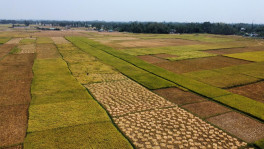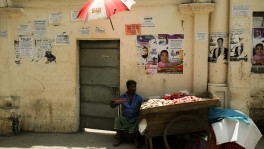Succeeding in a global organisation
The author shared some of his learnings from more than 20 years of personal experience in leadership roles

The past decade has been a watershed moment in the Bangladeshi corporate leadership scenario. For the first time, local homegrown CEOs dominate the corporate landscape of some of the biggest MNCs in our country.
I want to emphasise how momentous this is. This is a recognition that Bangladeshi talent has matured to the point where they can guide some of the biggest corporations in the world.
While foreign leaders have served us well, it is a testament to the fact that Bangladeshis can now lead, manage, and inspire, and mostly do not require hand-holding by foreign leaders.
I have been highly fortunate in my career. At 40, when I became the CEO of Citibank NA (first local CEO in an American Bank and till now the youngest CEO in the Bangladesh banking industry) in Bangladesh, many questioned whether I was the right choice.
Given my relative youth, Citibank's global reputation, and the responsibility upon me, those were reasonable doubts.
However, my seniors not only recognised and saw a potential future leader in me but also groomed me so I could learn from the challenges I faced.
The experience of learning from my seniors and more than 20 years of personal experience in leadership roles have inspired this article where I aim to inspire and educate the future leaders in this country.
I hope whoever reads this challenges the principles, questions them and ultimately adopts them in their own way.
Finding the right organisation
You may be incredibly talented, but you will not reach your potential unless the organisation invests in you and your learning.
This goes beyond classroom technical skills. This involves exposure to different scenarios, broadening your scope of work, giving you the opportunity to raise your voice or adding value to the overall decision-making process etc.
All this means that if your organisation is not doing this for you, ask for it. If you do not get it, move on to one that will.
Learning
At an age when people believe they can coast on their experience, I complete MOOC (massive open online courses) courses on leadership, transformation and development to stay abreast of the most recent developments.
This also includes learning from your colleagues. The way that my juniors approach a task is always instructive. Your peers and your colleagues will end up teaching you more than business books ever will.
Building your network
This is an aspect of leadership, which receives a lot of discourse, but it deserves an examination from the lens of a Bangladeshi leader. You must build a good relationship with your colleagues.
This relationship must be mutually respectful, but it must also be professional so you both benefit from it. In Bangladesh, the corporate world is small.
What people feel about you and the networks you build will determine your success to greater degrees, especially as you rise the corporate ladder. Use it. The opportunity in Bangladesh is endless.
Managing external relationships
This takes place in two ways:
a) Client relationships: If you are a business leader your clients determine your success.
If you are in professional services like I am in PwC, then client satisfaction is your number one goal.
Your quality of service is important across the world and just as important in Bangladesh.
Remember, client relationships are all about trust. If your clients believe you are the best thing for them, you will succeed no matter what you do.
If you take away one thing from this article let it be this: Develop and religiously maintain client relationships.
b) Working with regulators: Working with regulatory authorities is important all over the world, but for corporate worlds that are developing and evolving, it is a cornerstone of what will lead to success.
You must learn to work and negotiate with regulators while maintaining a great relationship with them. You must learn to understand how bureaucracy works in Bangladesh so you know what regulators will expect of you.
This means developing your situational awareness and being very clear about the on-the-ground realities your business is facing. If the regulators can hold you in trust and treat you as a person of content, your job is mostly done.
Corporate conduct
As a local leader of a global corporation, you must be extra careful. There will always be extra scrutiny placed on you and your actions.
Every hiring decision you take will be analysed for potential favouritism. Any operational decision you take will be subject to skepticism.
This might be unfair, but this is the reality until we break the perceptions about local leaders.
Be the embodiment of the values of your organisation. Always develop your people and invest in them. ANZ Grindlays Bank, Standard Chartered Bank, Citibank NA and lately PwC invested in me and developed me in ways I did not know I could.
In my time in Standard Chartered Bank, Citibank and now at PwC I identify the truly talented employees and I challenge them to develop.
I make sure they are working beyond the normal scope and expectations of their job because they have the potential to be more than a cog in a machine.
This is a delicate process, and you must identify how best to develop each person. Every investment I have made has paid me back many times. I have learned from my seniors and it is my job to continue this legacy.
Behaviour
Learning how to resolve conflicts and manage crises is not something you will learn in a classroom.
You will learn it when you are thrown into the deep end in a crisis involving multiple stakeholders with competing desires.
It is very tough to exhibit focus, discipline and drive daily but that is what being a leader is. CEOs must have an entrepreneurial mindset. Entrepreneurs do not wait for somebody else to solve the problem.
They do not expect things to work out right. They take responsibility. They are passionate about what they do and have a razor-sharp focus on extracting the best results from their efforts. A leader who fails to do just that will not be someone people follow.
I belong to the generation who believes Bangladesh represents the greatest opportunity-case in the world. I challenge the heirs of my generation through this article to realise their potential.

Mamun Rashid is a partner at PwC for more than six years. He spent more than two decades in senior positions with three global banks at home and abroad.


 Keep updated, follow The Business Standard's Google news channel
Keep updated, follow The Business Standard's Google news channel
















